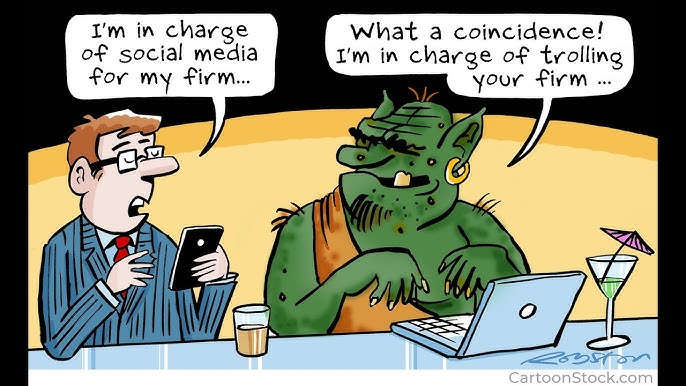What is Online Trolling?
Online trolling refers to the deliberate act of provoking, harassing, or upsetting individuals or communities on the internet through inflammatory, off-topic, or malicious messages. Trolls may target public figures, individuals, or vulnerable groups and often hide behind anonymous accounts.

Trolling can escalate from simple jokes to harmful online harassment that affects a person’s mental health and online presence.
Trolling can be disguised as humor or criticism but is often meant to incite emotional reactions, bully, or silence others. It thrives on attention, which is why ignoring or reporting such behavior is often the best first step.
Forms of Online Trolling
- Posting offensive, racist, or hateful comments
- Mocking personal beliefs, appearances, or tragedies
- Deliberately spreading misinformation to mislead or confuse
- Impersonating others to discredit or defame them
- Stirring conflict in comment sections or online communities
How to Respond to Trolling
- Don’t engage: Trolls thrive on attention. Avoid replying to provoke a reaction.
- Report: Use the platform's tools to report abusive content or block the user.
- Document: Take screenshots if the trolling turns into harassment or threats.
- Seek help: If the trolling becomes threatening, report to local authorities or your country's CERT.
- Support others: Stand with victims of trolling and help report abuse to stop online hate.
Preventing Trolling in Your Communities
- Moderate comments and implement clear community guidelines
- Promote respectful dialogue and empathy
- Educate users on digital etiquette and online empathy
- Encourage users to speak up against bullying behavior
Online trolling is not just annoying—it can be deeply harmful. Let’s build safer digital spaces by recognizing toxic behavior and refusing to tolerate it.